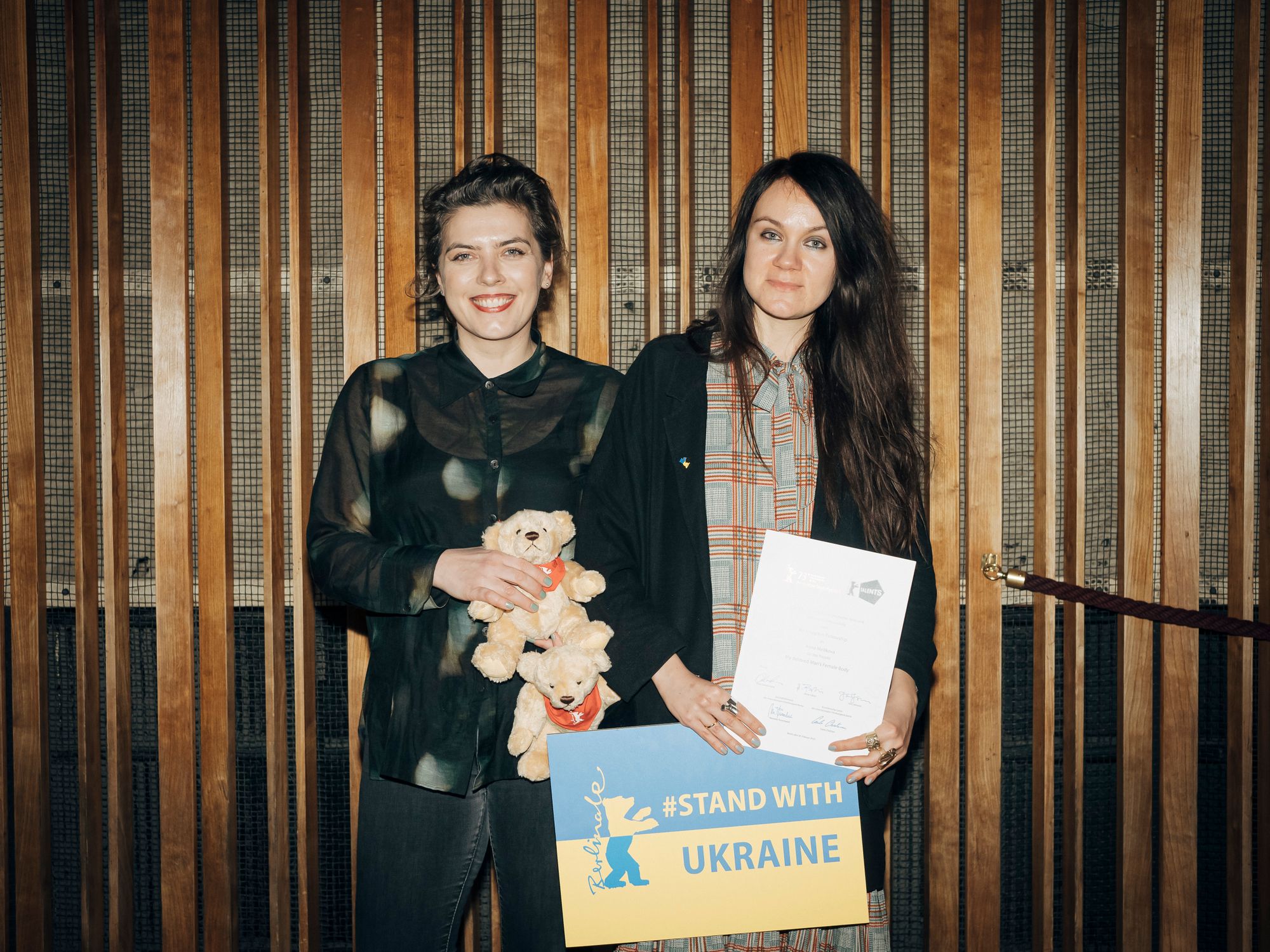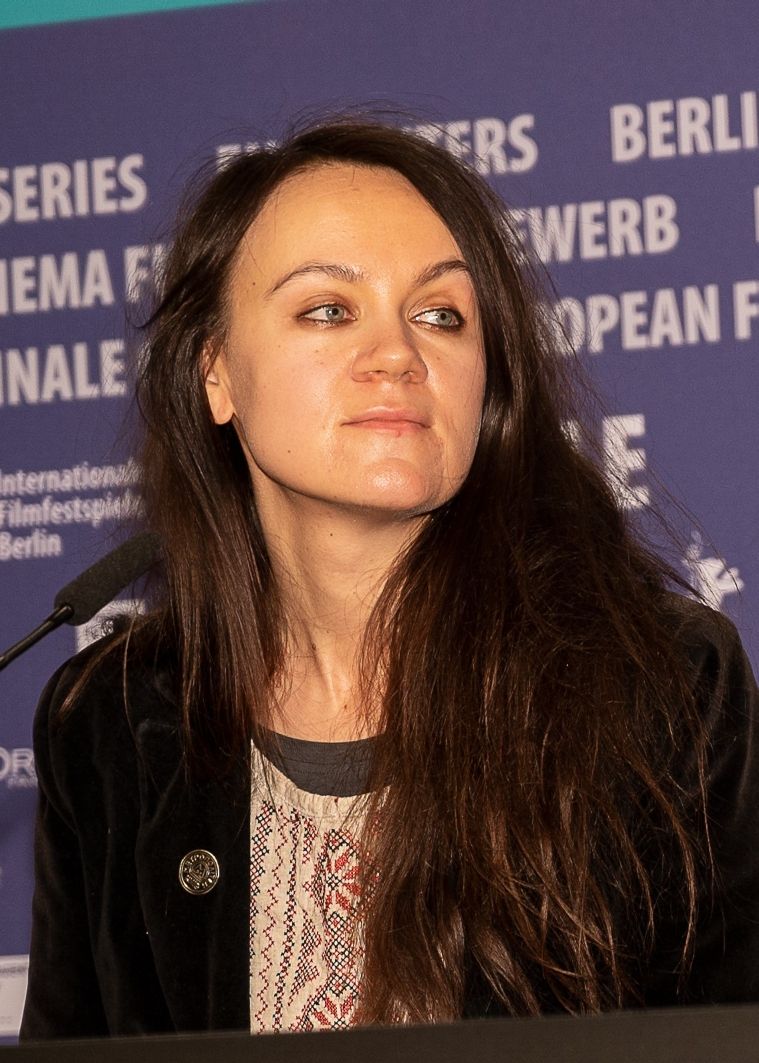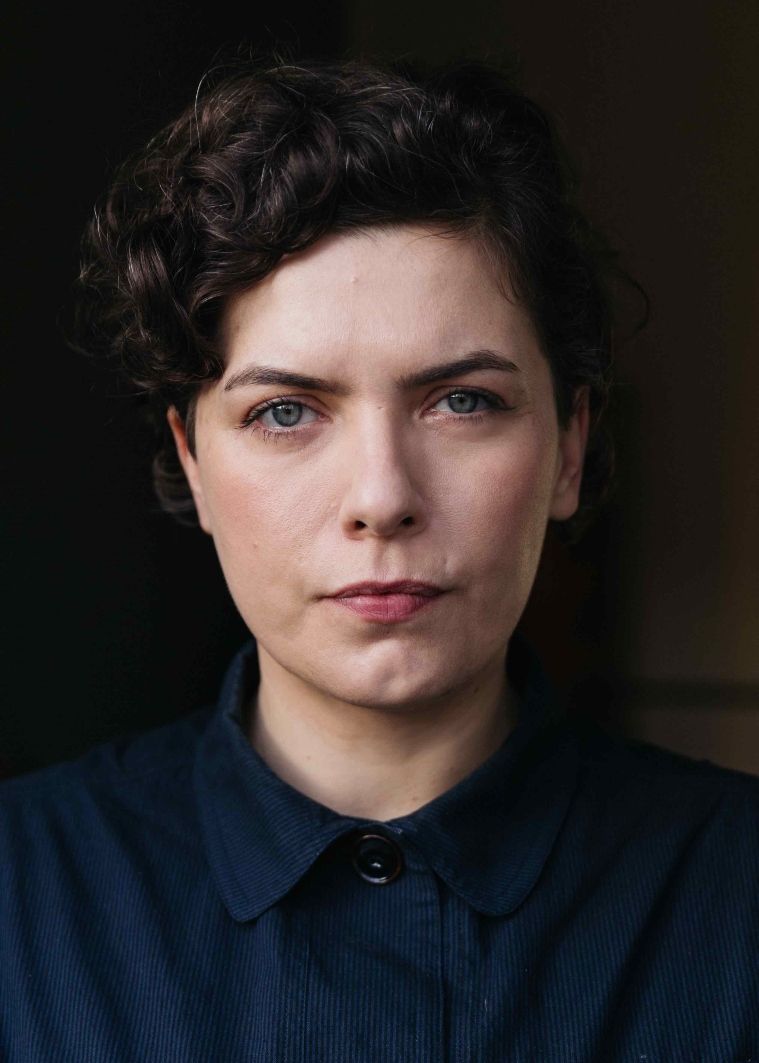Interview: Mareike Wegener & Anna Melikova, 2023 Kompagnon Fellows
The 2023 recipients of the annual Kompagnon Fellowship were Anna Melikova and Mareike Wegener. The fellowship is awarded jointly by Berlinale Talents and the Berlinale programme sections to screenwriters and directors based in Germany. Anna was selected for the 2023 Berlinale Talents Script Station, and Mareike had been selected for Perspektive Deutsches Kino in 2022 with her first fiction feature Echo. The projects which they applied with were My Beloved (working title) and Paraphrase on the Finding of a Glove respectively.
Supported by the German Federal Film Board (FFA), the fellowship provides a stipend of €5,000 to those selected to develop their project. Based on their individual needs, an additional €3,000 can be spent to support and strengthen the fellow's artistic or entrepreneurial signature - whether through coaching, mentoring, or personal consultancy.
We caught up with this year's fellows to hear all about their projects, their experience with the fellowship and more.

How did the Kompagnon Fellowship support you in your work?
Anna: I would like to note that in general the whole experience with the Berlinale Talents Script Station was very important for me – not only for the process of writing a script, but also for learning how to talk about the project to other people. Thanks to the Kompagnon Fellowship, I received additional sessions with a script consultant which were very productive for the development of the story. Later, I think this helped me and Isabelle Stever, director of the film, with getting funding and by searching for producers.
Mareike: Receiving support and appreciation for one’s work is of course always exciting. This is the case especially at the beginning of a project because it really helps to get the ball rolling. (“Yes, there will be a new film, because the Berlinale said so.”). Having an idea and shaping it into something that becomes a film is an enthralling and joyful process for me, but it can also have its ups and downs. You can never be certain whether a project will be realized or how long it will take (it can take many, many years, as I well know from experience!) So positive input along the way, whether in the form of feedback or financing, is always very encouraging. And this is exactly what the Kompagnon Fellowship provides. I am grateful for the support I am receiving, and I feel that it will help me beyond the current project.
Mareike, can you tell us a bit about “Paraphrase on the Finding of a Glove”, your inspirations and the film’s progress?
Mareike: Paraphrase on the Finding of a Glove is inspired by a sequence of etchings published in the late 19th century by Max Klinger. The narrative revolves around an artist’s phantasies instigated when he finds a glove on a skating rink in Berlin’s Hasenheide Park. The sequence is a playful inquiry into the relationship between loneliness, obsession, madness, and desire, and I adapted it for the screen in order to think more about the recent events, in particular the pandemic and its effects on individual and collective mental health. I finished the first draft a few weeks ago and hope to have financing secured by the end of next year. The film will be produced by Petrolio Film, which is a filmmakers’ production collective I founded together with Hannes Lang and Carmen Losmann ten years ago. Two examples of films produced by Petrolio over the past few years include the aforementioned ECHO and Oeconomia, a documentary that premiered at the Berlinale in 2020. We are currently looking for a European co-production for Paraphrase.
Anna, you received the fellowship to work on a story of your friends, it’s about a queer couple in Ukraine going through a transition as the same time as their country transitions into war. May we ask how much did it come from reality and how much is fiction? How do you approach such a personal subject?
Anna: The plot is largely based on the true story of my queer friends. About them and their relationships, I wanted to write a screenplay before the war, because I felt that their case was not yet sufficiently represented in cinema. But unfortunately, the Russian invasion brought a new dimension to this story. I like to compare the approach to writing this script with my previous script for the film Grand Jete, directed by Isabelle Stever. I would say that both are adaptations, but if Grand Jeté was an adaptation of a novel, then the script My Beloved is an adaptation of life. In addition to the story of my queer friends, which forms the framework of the script, I made a research and recorded conversations with my other friends who were caught up in the Russian invasion in Kyiv, Lviv, Dnipro and Bucha. Furthermore, I add my personal experience to everything I write.
You were born and raised in Ukraine before living in Moscow and now finally Germany. How has your time in those different cultures influenced your work?
Anna: This is one of the biggest and most important questions for me, that constantly occupies my thoughts. In order to answer it, I wrote my first novel. It will be published next year. In short (although short answers oversimplify a complex reality): I grew up in the Ukrainian Crimea, where Russian culture was exalted and Ukrainian culture, including the language, was belittled. At that moment I did not realize this at all and took it for granted. Russian culture had a huge influence on me, which I am questioning now. I am trying to avoid using the Russian language, which is my mother tongue, but which I now associate with Russian aggression, including Russian cultural expansion. I still have a hybrid identity. But now my Russian-speaking identity has faded and I turn more to my Ukrainian identity. The struggle between these two identities takes place on let’s call it neutral territory, in Germany.
What are the challenges you face in the film industry?
Mareike: In Germany the film industry is financed predominantly by the state and getting a film made from start to finish can take a very long time. The biggest drawback of this in my opinion becomes the inability for films to explore contemporary issues, things that matter today. At times the time-consuming process gets in the way of cinema remaining vital and relevant.
Anna: I started working in the film industry more than 10 years ago from the other side - as a film critic and curator. Based on the films that I loved to analyze, I learned to write scripts. Now it is important for me to write stories that try to comprehend our complex reality and look for an unconventional perspective for this, connecting the private and political, sexual and social.
Anna Melikova was born in Crimea, studied in Kyiv, worked as a film curator in Moscow, since 2017 lives in Berlin. She wrote the screenplay for Grand Jeté (director: Isabelle Stever, premiered Berlinale 2022). Since 2022 she is a member of the Berlinale Panorama selection committee.
In 2022 she was a fellow of the Berlin Literary Colloquium. In 2024 she will receive a scholarship for literature from the Berlin Senate. Her debut novel “Ich ertrinke in einem fliehenden See” will be published in Matthes & Seitz 2024. With the German-Ukrainian film project My Beloved (working title) she was selected for the Berlinale Talents Script Station 2023 and received the Kompagnon Fellowship Award.

Mareike Wegener is filmmaker, writer and producer who studied directing at the Academy of Media Arts in Cologne and the New School in New York as well as philosophy at the European Graduate School in Switzerland. She made her directorial debut with the feature-length documentary Mark Lombardi – Death-defying Acts of Art and Conspiracy (2012) for which she received the Gerd-Ruge-Grant. She also co-wrote Hannes Lang’s non-fiction films Peak (2011), I Want to See the Manager (2014), and Riafn (2019). Her company PETROLIO is a filmmakers’ cooperative she runs alongside fellow filmmakers Hannes Lang and Carmen Losmann. Their production Oeconomia (2020) premiered at the 70th Berlinale in the Forum section and won two Gimme-Awards. In 2021 Mareike’s short X was awarded the German Short Film Award (Lola) in silver. Her first fiction feature Echo was invited to the 2022 Berlinale in the Perspektive section.
